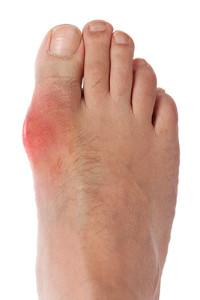 Gout, a common form of inflammatory arthritis, is a joint disease that can be particularly painful when it flares up. A certain diet has been found to lower levels of uric acid in the bloodstream. The DASH (Dietary Approaches to Stop Hypertension) diet, which is high in fruits and vegetables and low in salt, sugar, and red meat, can be very beneficial for people with gout. This diet is also low in purines, a compound that breaks down to form uric acid. After a study period of 26 years, doctors found that those who followed the DASH diet were less likely to develop gout compared to those who ate a typical Western diet.
Gout, a common form of inflammatory arthritis, is a joint disease that can be particularly painful when it flares up. A certain diet has been found to lower levels of uric acid in the bloodstream. The DASH (Dietary Approaches to Stop Hypertension) diet, which is high in fruits and vegetables and low in salt, sugar, and red meat, can be very beneficial for people with gout. This diet is also low in purines, a compound that breaks down to form uric acid. After a study period of 26 years, doctors found that those who followed the DASH diet were less likely to develop gout compared to those who ate a typical Western diet.
Gout is a foot condition that requires certain treatment and care. If you are seeking treatment, contact Brent Harwood, DPM from Southeast Podiatry. Our doctor will treat your foot care needs.
What Is Gout?
Gout is a type of arthritis caused by a buildup of uric acid in the bloodstream. It often develops in the foot, especially the big toe area, although it can manifest in other parts of the body as well. Gout can make walking and standing very painful and is especially common in diabetics and the obese.
People typically get gout because of a poor diet. Genetic predisposition is also a factor. The children of parents who have had gout frequently have a chance of developing it themselves.
Gout can easily be identified by redness and inflammation of the big toe and the surrounding areas of the foot. Other symptoms include extreme fatigue, joint pain, and running high fevers. Sometimes corticosteroid drugs can be prescribed to treat gout, but the best way to combat this disease is to get more exercise and eat a better diet.
If you have any questions please feel free to contact one of our offices located in Fairhope, Brewton, and Atmore, AL . We offer the newest diagnostic and treatment technologies for all your foot care needs.
Read more about Everything You Need to Know About Gout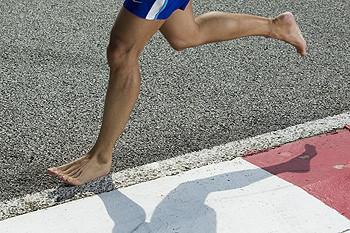 There are a lot of debates about whether or not barefoot running is beneficial for the feet. Although research suggests that there are several benefits from running barefoot, there are also plenty of risks. Running without shoes is proven to be hazardous due to dangerous debris or sharp rocks that may be on the ground. In order to prevent some of these issues, barefoot shoes were created. These shoes are able to simulate the feeling of running barefoot while reducing the dangers that may result from it.
There are a lot of debates about whether or not barefoot running is beneficial for the feet. Although research suggests that there are several benefits from running barefoot, there are also plenty of risks. Running without shoes is proven to be hazardous due to dangerous debris or sharp rocks that may be on the ground. In order to prevent some of these issues, barefoot shoes were created. These shoes are able to simulate the feeling of running barefoot while reducing the dangers that may result from it.
Barefoot running has its own share of benefits and disadvantages. If you have any concerns about your feet or , contact Brent Harwood, DPM from Southeast Podiatry. Our doctor will treat your foot care needs.
Barefoot Running
The Impact of Barefoot Running
The Advantages of Barefoot Running
The Drawbacks of Barefoot Running
So, what can runners do to make barefoot running safe? It’s best to make a slow transition from running shoes to barefoot running. Once the feet begin to adjust, try walking, then jogging and gradually increasing the distance. Minimalist running shoes may also be an option.
If you have any questions please feel free to contact one of one of our offices located in Fairhope, Brewton, and Atmore, AL . We offer the newest diagnostic and treatment technologies for all your foot care needs.
Read more about Barefoot Running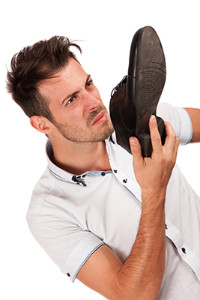 Athlete’s foot is a condition that many people may encounter at some point in their lives. While severe cases of the condition should be referred to a podiatrist, athlete’s foot prevention can be easy with the help of a few simple steps: Wash the feet thoroughly with soap and water, keep the feet clean and dry, wear clean socks and shoes, change shoes and socks often, practice good hygiene, wear sandals or slippers at a public shower or pool, use antifungal powder when needed, and wear shoes that are well-ventilated. Hygiene is key in preventing athlete’s foot and if practiced regularly, should keep the condition at bay.
Athlete’s foot is a condition that many people may encounter at some point in their lives. While severe cases of the condition should be referred to a podiatrist, athlete’s foot prevention can be easy with the help of a few simple steps: Wash the feet thoroughly with soap and water, keep the feet clean and dry, wear clean socks and shoes, change shoes and socks often, practice good hygiene, wear sandals or slippers at a public shower or pool, use antifungal powder when needed, and wear shoes that are well-ventilated. Hygiene is key in preventing athlete’s foot and if practiced regularly, should keep the condition at bay.
Athlete’s foot is an inconvenient condition that can be easily reduced with the proper treatment. If you have any concerns about your Feet, contact Brent Harwood, DPM from Southeast Podiatry. Our doctor will treat your foot care needs.
Athlete’s Foot: The Sole Story
Athlete's foot, also known as tinea pedis, can be an extremely contagious foot infection. It is commonly contracted in public changing areas and bathrooms, dormitory style living quarters, around locker rooms and public swimming pools, or anywhere your feet often come into contact with other people.
Solutions to Combat Athlete’s Foot
Athlete’s foot can cause many irritating symptoms such as dry and flaking skin, itching, and redness. Some more severe symptoms can include bleeding and cracked skin, intense itching and burning, and even pain when walking. In the worst cases, Athlete’s foot can cause blistering as well. Speak to your podiatrist for a better understanding of the different causes of Athlete’s foot, as well as help in determining which treatment options are best for you.
If you have any questions please feel free to contact one of our offices located in Fairhope, Brewton, and Atmore, AL . We offer the newest diagnostic and treatment technologies for all your foot care needs.
Read more about Athlete's Foot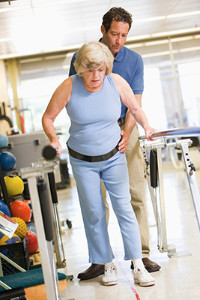 Foot diseases and other foot-related problems often become more prevalent as we age. Years of bearing body weight and certain ailments can combine to wreak havoc on the feet and ankles. The foot problems we may experience as time goes on vary from minor to potentially very serious. First and foremost, if you are a diabetic, foot care needs to be a high priority. Diabetic ulcers and sores, if left untreated, can lead to infection and even gangrene, resulting in amputation. Daily foot inspections are necessary to ensure that there are no cuts, sores, or swelling. Even something as seemingly minor as cracked skin on the foot can lead to terrible consequences if gone unnoticed. Using moisturizer and soap that doesn’t dry out the skin can help in this area. That being said, it is also important to keep the feet dry, as toenail fungus grows more readily in moist environments. Keeping the feet elevated is also a good tip. This will help circulate the blood to the lower extremities. Poor circulation can lead to serious medical conditions.
Foot diseases and other foot-related problems often become more prevalent as we age. Years of bearing body weight and certain ailments can combine to wreak havoc on the feet and ankles. The foot problems we may experience as time goes on vary from minor to potentially very serious. First and foremost, if you are a diabetic, foot care needs to be a high priority. Diabetic ulcers and sores, if left untreated, can lead to infection and even gangrene, resulting in amputation. Daily foot inspections are necessary to ensure that there are no cuts, sores, or swelling. Even something as seemingly minor as cracked skin on the foot can lead to terrible consequences if gone unnoticed. Using moisturizer and soap that doesn’t dry out the skin can help in this area. That being said, it is also important to keep the feet dry, as toenail fungus grows more readily in moist environments. Keeping the feet elevated is also a good tip. This will help circulate the blood to the lower extremities. Poor circulation can lead to serious medical conditions.
If you need your feet checked, contact Brent Harwood, DPM of Southeast Podiatry. Our doctor will attend to all of your foot and ankle needs and provide you with quality treatment.
Geriatrics and Podiatry
When people age, some common issues that may occur are bone density loss, dry skin, poor circulation, and rough brittle nails. These issues may also affect your foot health if the necessary steps are not taken to alleviate the problems.
It is important to take care of your feet because feet that are injured or diseased can affect your overall health. Having painful feet hinders your ability to do daily activities or may decrease your willingness to do the things that you need to do.
Visiting Your Geriatrician
As we age, health problems become more likely, so it is essential to visit your doctor for check-ups to ensure that you are doing the best you can to take care of your health. It is recommended to check your feet frequently for any possible cuts, bruises, swelling, corns or any other irregularities.
Taking Care of Elderly Feet
Cracked or dry feet can be treated by applying moisturizer often. It is also important not to wear old socks because the older the sock is, the higher the possibility there will be that there is bacteria there. Wear fresh socks and make sure they fit properly.
Proper foot health means that you can have a more active lifestyle and you will not be bogged down by pain. Foot health also leads to good circulation, which is paramount for overall health.
If you have any questions, please feel free to contact one of our offices located in Fairhope, Brewton, and Atmore, AL . We offer the newest diagnostic tools and technology to treat your foot and ankle needs.
Read more about Geriatrics and Podiatry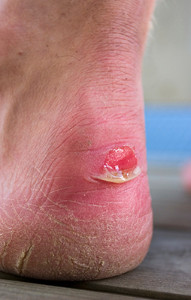 When Queen Elizabeth II breaks in a new pair of shoes, she doesn’t; she has a member of her staff break in her footwear for her. For many people, breaking in a new pair of shoes often results in uncomfortable pain and the formation of tender blisters on the feet. To avoid this issue altogether, the Queen instead gives her shoes to a junior member of Buckingham Palace staff who wears the same size. These shoes are then reportedly broken in by the staff member, who fulfills this task by walking up and down the palace corridors until the shoes have softened and become more comfortable. Long-time dressmaker for the queen, Stewart Parvin, revealed this information. While you may not be able to have someone break in your shoes for you, blisters can be avoided by gradually breaking in new shoes over a period of time.
When Queen Elizabeth II breaks in a new pair of shoes, she doesn’t; she has a member of her staff break in her footwear for her. For many people, breaking in a new pair of shoes often results in uncomfortable pain and the formation of tender blisters on the feet. To avoid this issue altogether, the Queen instead gives her shoes to a junior member of Buckingham Palace staff who wears the same size. These shoes are then reportedly broken in by the staff member, who fulfills this task by walking up and down the palace corridors until the shoes have softened and become more comfortable. Long-time dressmaker for the queen, Stewart Parvin, revealed this information. While you may not be able to have someone break in your shoes for you, blisters can be avoided by gradually breaking in new shoes over a period of time.
Blisters are prone to making everyday activities extremely uncomfortable. If your feet are hurting, contact Brent Harwood, DPM of Southeast Podiatry. Our doctor can provide the care you need to keep you pain-free and on your feet.
Foot Blisters
Foot blisters develop as a result of constantly wearing tight or ill-fitting footwear. This happens due to the constant rubbing from the shoe, which can often lead to pain.
What Are Foot Blisters?
A foot blister is a small fluid-filled pocket that forms on the upper-most layer of the skin. Blisters are filled with clear fluid and can lead to blood drainage or pus if the area becomes infected.
How Do Blisters Form?
Blisters on the feet are often the result of constant friction of skin and material, usually by shoe rubbing. Walking in sandals, boots, or shoes that don’t fit properly for long periods of time can result in a blister. Having consistent foot moisture and humidity can easily lead to blister formation.
Prevention & Treatment
It is important to properly care for the affected area in order to prevent infection and ease the pain. Do not lance the blister and use a Band-Aid to provide pain relief. Also, be sure to keep your feet dry and wear proper fitting shoes. If you see blood or pus in a blister, seek assistance from a podiatrist.
If you have any questions, please feel free to contact one of our offices located in Fairhope, Brewton, and Atmore, AL . We offer the newest diagnostic and treatment technologies for all your foot care needs.
Read more about Blisters on the Feet